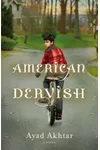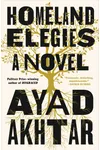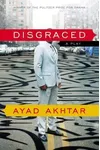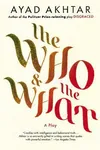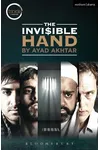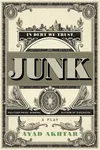Picture a Pakistani-American storyteller who fearlessly tackles identity and culture in a post-9/11 world—meet Ayad Akhtar! This Pulitzer Prize-winning playwright, novelist, and screenwriter has captivated audiences with his sharp, heartfelt explorations of Muslim-American life. From the raw intensity of Disgraced to the tender coming-of-age tale of American Dervish, Akhtar’s work blends wit, drama, and universal truths that resonate far beyond the stage or page.
Born in 1970 to Pakistani immigrant parents, Akhtar’s journey from a Milwaukee suburb to literary stardom is as compelling as his stories. His ability to weave personal experience with broader social issues has made him a vital voice in contemporary American literature, earning accolades and sparking conversations worldwide.
The Making of Ayad Akhtar
Ayad Akhtar grew up in Brookfield, Wisconsin, the son of two doctors who instilled a love for learning. As a first-generation Pakistani-American, he navigated the complexities of cultural identity early on, a theme that would later define his work. At Brown University, he studied theater, later honing his craft in film at Columbia University. His time in Italy working with avant-garde theater legend Jerzy Grotowski and teaching alongside Andre Gregory shaped his bold, experimental approach to storytelling. Akhtar’s early career included acting and co-writing the 2005 film The War Within, but it was his pivot to writing that unleashed his creative fire.
Ayad Akhtar’s Unforgettable Stories
Akhtar’s breakout play, Disgraced (2012), is a gut-punch of a drama about a Pakistani-American lawyer grappling with identity and Islamophobia. Winning the 2013 Pulitzer Prize for Drama, it’s a searing look at ambition, prejudice, and the cost of assimilation, performed on Broadway and globally. His debut novel, American Dervish (2012), is a semi-autobiographical gem, following a young Muslim boy in 1980s Milwaukee as he navigates faith, family, and anti-Semitism. Translated into over 20 languages, it’s a poignant coming-of-age story with universal appeal.
Junk (2017), another Broadway hit, shifts gears to explore 1980s Wall Street greed, proving Akhtar’s versatility beyond cultural narratives. His play The Who & The What (2014) dives into family tensions over religion, blending humor and heart. Akhtar’s style is incisive yet empathetic, often placing flawed, complex characters in high-stakes moral dilemmas. His works tackle Muslim-American identity, racism, and capitalism with a lens that feels both deeply personal and broadly relatable.
His 2020 novel, Homeland Elegies, blurs fiction and memoir, reflecting on Trump-era America and the immigrant experience. Critics praised its raw honesty, cementing Akhtar’s reputation as a literary trailblazer. Whether on stage or page, his stories provoke, entertain, and linger long after the curtain falls.
Why Ayad Akhtar Matters
Ayad Akhtar’s impact lies in his fearless storytelling, which challenges stereotypes and humanizes the Muslim-American experience. In a post-9/11 world, his works confront Islamophobia and cultural divides, fostering dialogue through art. His plays and novels have been translated into dozens of languages, performed worldwide, and studied for their nuanced take on identity and society. Akhtar’s influence extends beyond literature—he’s a cultural bridge, inviting readers and audiences to question assumptions and embrace complexity.
His awards, including the Pulitzer, Tony nominations, and the American Book Award, underscore his literary prowess, but it’s his ability to spark empathy that truly defines his legacy. Akhtar’s stories remind us that identity is never simple, and that’s what makes them timeless.
About Ayad Akhtar
- Born: October 28, 1970, Staten Island, New York
- Key Works: Disgraced, American Dervish, Junk, Homeland Elegies
- Awards: 2013 Pulitzer Prize for Drama, Tony Award nominations (2015, 2017), American Book Award
- Fun Fact: Akhtar once dreamed of the Prophet Muhammad as a child, an experience that shaped his exploration of faith.
Snag American Dervish or catch a performance of Disgraced to dive into Ayad Akhtar’s bold, thought-provoking world. Trust us, you won’t look at identity—or storytelling—the same way again!
